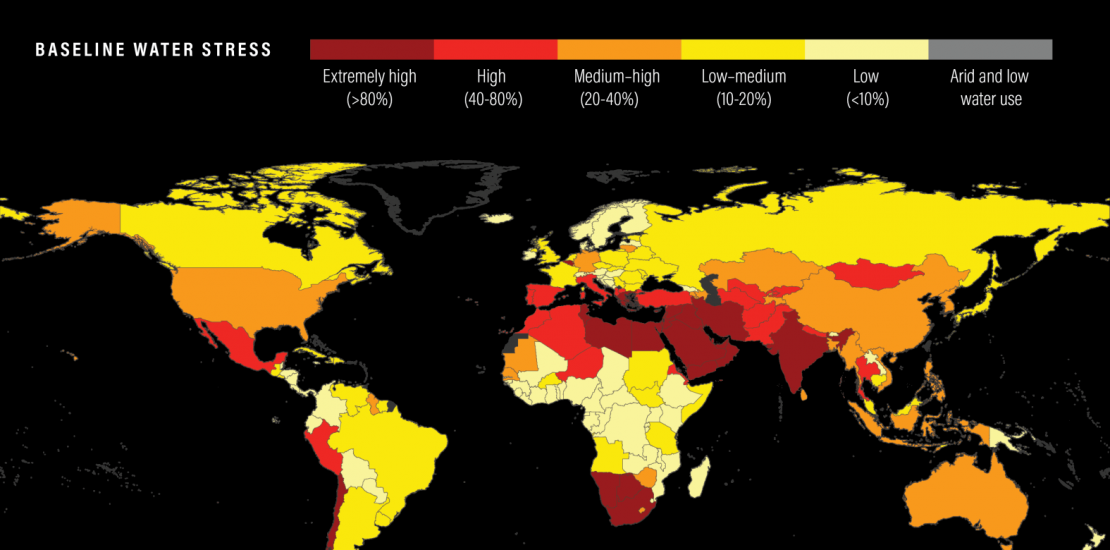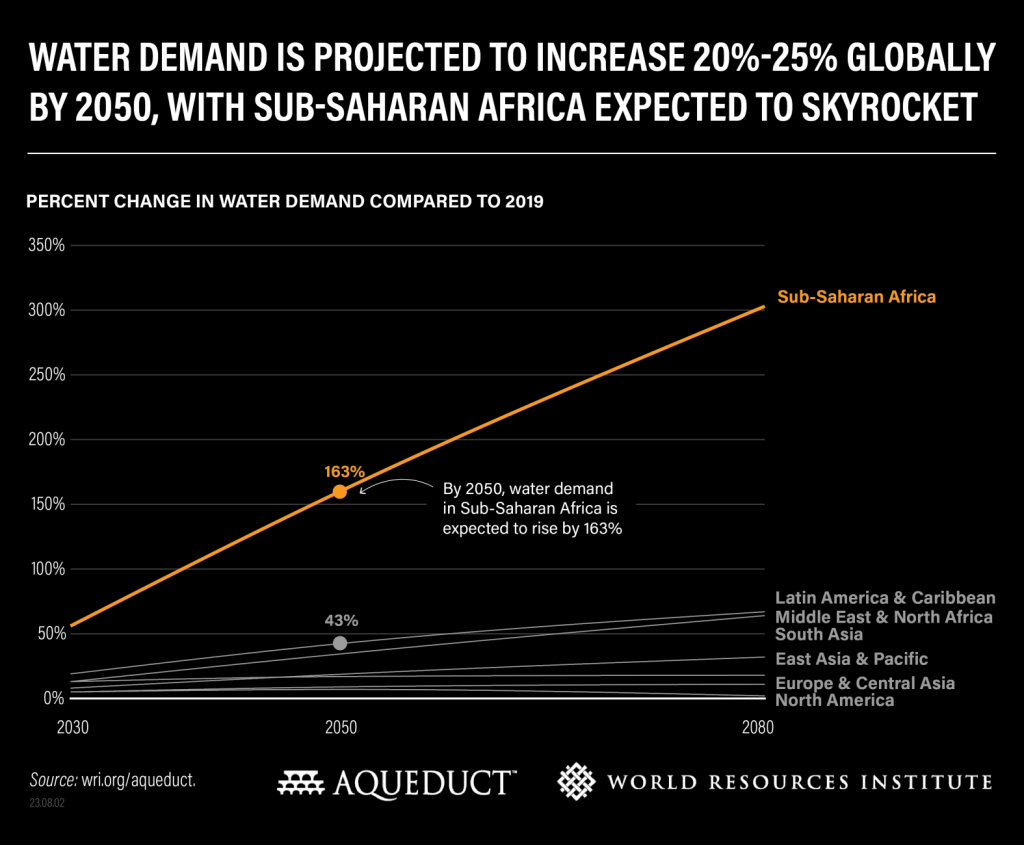WRI report shows that one-quarter of the world's population face extremely high water stress.
- August 22, 2023
- Posted by: Sinead Sprigg
- Category: Environmental, Global, Investment and Finance, Water Issues, Africa, Arctic & Antarctica, Asia, Australasia, Europe, Middle East, North America, Russia, South America

A recent report from the World Resources Institute’s (WRI) Aqueduct Water Risk Atlas highlights the critical issue of global water stress. The data reveals that a quarter of the global population face exceptionally high water stress each year, depleting almost their entire available water supply. Additionally, around 4 billion people, or 50% of the global population, experience highly water-stressed conditions for at least one month annually, endangering lives, jobs, food, energy security, and more.
The findings show that insufficient water management, coupled with factors such as population growth, economic development, and climate change, will exacerbate water stress. The report delves into the causes and consequences of this growing issue, with an emphasis on the most affected countries and regions.
The escalating demand for water is outpacing its availability, with a more than twofold increase in global demand since 1960. Population growth and expanding industries like agriculture, livestock, energy, and manufacturing are contributing to this demand surge. The lack of investment in water infrastructure, unsustainable water use policies, and climate change-induced variability in water supply also play roles in exacerbating water stress.
Water stress is measured by the ratio of water demand to renewable supply, and a smaller gap between these factors denotes higher vulnerability to water shortages.
Countries experiencing “extreme water stress” utilise at least 80% of their available supply, while “high water stress” denotes withdrawal of 40% of the supply.
The most water-stressed regions are the Middle East and North Africa, where 83% of the population faces extreme water stress, and South Asia, where the figure is 74%.
Without intervention the situation is projected to worsen with an additional 1 billion people expected to face extremely high water stress by 2050. Global water demand is predicted to rise 20-25% by 2050, accompanied by a 19% increase in watersheds with unpredictable water supply.
The Middle East and North Africa are likely to live under extreme water stress by 2050.
Sub-Saharan Africa will see the most significant increase in water demand by 2050, despite not currently being highly water-stressed This rise, mainly for irrigation and domestic use, could support economic growth, but ineffective water management might lead to a 6% drop in the region’s GDP.

Meanwhile, water demand has plateaued in wealthier regions like North America and Europe, although international water dependencies could exacerbate stress in less affluent nations.
Without intervention — such as investment in water infrastructure and better water governance — water stress will continue to get worse, particularly in places with rapidly growing populations and economies.
WRI research shows that solving global water challenges costs the world about 1% of GDP, or 29 cents per person, per day from 2015 to 2030. What’s missing is the political will and financial backing to make these cost-effective solutions a reality.
Various measures to enhance water management and alleviate water stress include improving water governance, promoting water efficiency in agriculture, adopting integrated water resource management, investing in nature-based solutions, among others. The findings emphasize the need for concerted efforts at all levels to secure a sustainable water future.
Read the full findings here.
